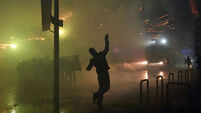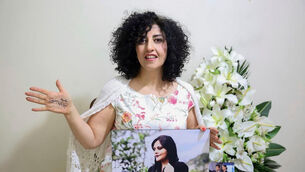Chechen President killed in stadium blast
Chechen President Akhmad Kadyrov was among at least 20 people killed in a bomb blast at a Grozny stadium where he was attending Victory Day observances, officials said.
The explosive device, believed to be a land mine, was planted under the seats where Kadyrov and other dignitaries were watching the ceremonies marking the defeat of the Nazis in the Second World War.














